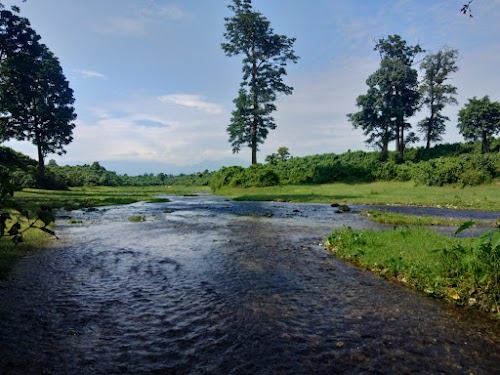
Totopara
Jalpaiguri, India
- Explore the surrounding tea gardens.
- Interact with the local Toto people.
- Learn about Toto culture and traditions.
- Take photographs of the scenic landscape.
- Visit the Toto tribal village.
Known for:
Description:
Totopara is a unique and culturally significant village in Jalpaiguri, West Bengal, India. It's the only settlement of the Toto tribe, an isolated indigenous community with a distinct language and traditions. Visiting Totopara offers a rare opportunity to experience the Toto way of life, observe their traditional houses and customs, and learn about their unique culture. The village is nestled amidst lush green hills and tea gardens, providing a serene and picturesque backdrop. While the infrastructure is basic, the authentic cultural immersion makes it a compelling destination for culturally sensitive and respectful travelers. It's a chance to step away from the mainstream tourist trail and connect with a community that has preserved its heritage for centuries. Remember to be mindful of their privacy and customs during your visit.
History:
The history of Totopara is intrinsically linked to the Toto tribe, believed to have inhabited the region for centuries. Their origin remains somewhat unclear, but linguistic and cultural studies suggest connections to other Tibeto-Burman groups. Historically, the Totos practiced a unique form of agriculture and animal husbandry. They were largely isolated from the outside world until the late 19th and early 20th centuries when contact with British administrators and missionaries increased. This contact brought about changes in their traditional lifestyle, including education and healthcare. However, the Totos have strived to maintain their distinct cultural identity, language, and traditions despite external influences. Today, efforts are underway to preserve their heritage and improve their socio-economic conditions while respecting their unique cultural practices.